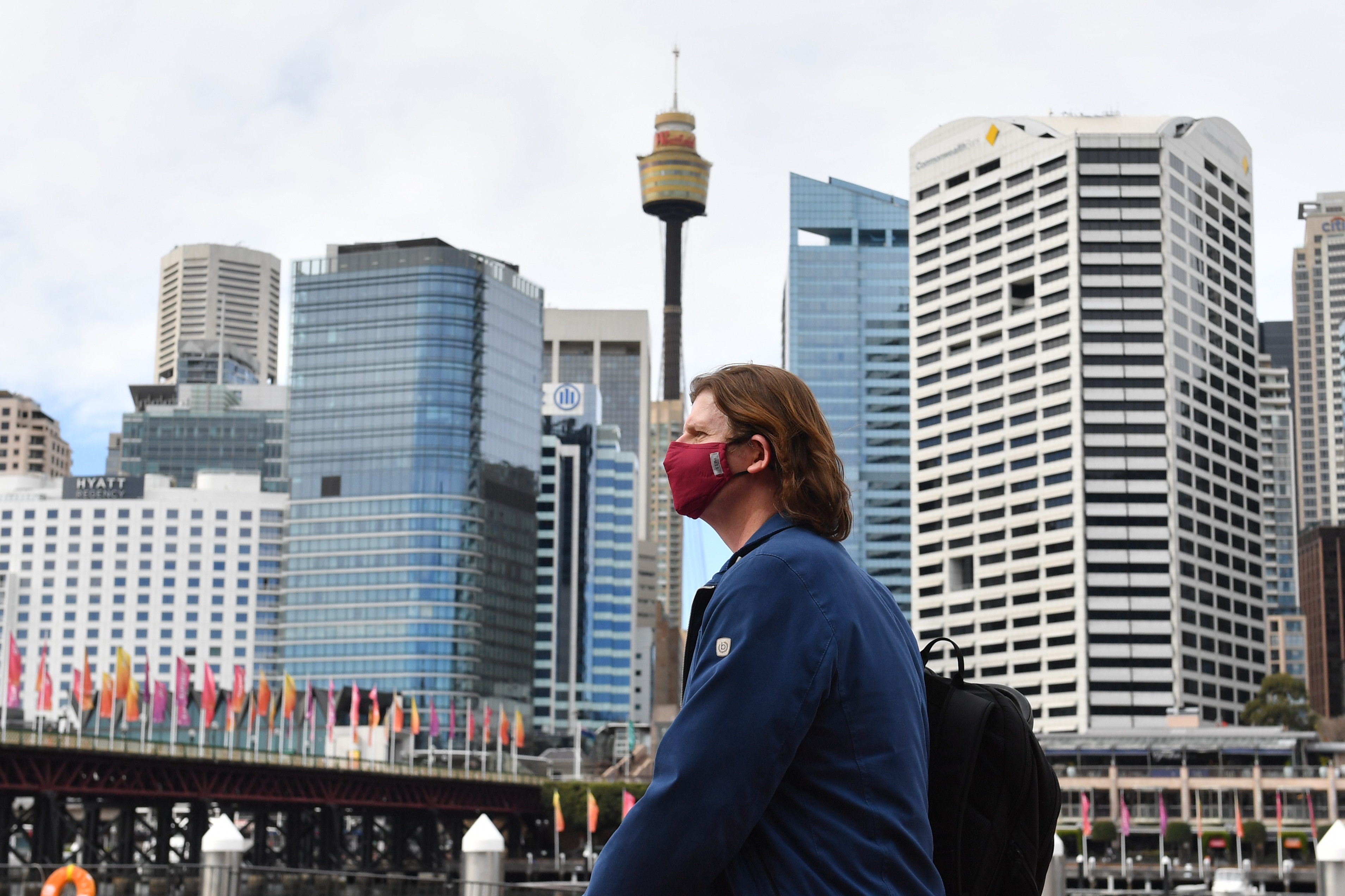New South Wales has recorded eight new locally-acquired coronavirus cases on Sunday and an additional three cases in hotel quarantine.
Five of the cases were linked to the Berala cluster in Sydney’s west, which now stands at 13 cases, while two of Sunday’s new infections related to the 148-case Avalon cluster.
Chief Health Officer Dr Kerry Chant said genomic sequencing had shown that the Berala cluster was linked to a patient transport driver, and not the Avalon cluster as initially thought.
She urged anyone who had visited the Berala BWS bottle-shop over certain times over a nine day period to come forward and get tested and isolate for 14 days.
“I can’t stress enough how concerned we are at the transmission potential (at the BWS),” she said.
Meanwhile, mandatory mask restrictions are now in place for many venues across Greater Sydney, following an announcement from Premier Gladys Berejiklian on Saturday.
“What we want to do is make sure we’re not in a situation where we are restricting people’s ability to go about their business,” Ms Berejiklian said.
“In fact, we want to increase economic activity, not diminish economic activity, and mask-wearing in these settings will ensure we have the confidence to do that.”
From midnight, masks became mandatory in shopping centres, on public transport, in places of worship, hair and beauty premises and entertainment venues such as cinemas.
All hospitality staff are also required to wear one, with anyone disobeying the health order to be fined $200 from Monday.
Children under 12 and those with specific health disorders are exempt but are encouraged to wear masks where possible.
The Australian Medical Association, which has long been calling for the move, said it was an important decision.
“This is … an acknowledgment that wearing face masks is one of our simplest weapons against the spread of coronavirus,” AMA President Dr Omar Khorshid said.
Stay-at-home orders will continue for residents north of the Narrabeen Bridge in the northern beaches until at least 9 January, while people in the southern half of the region will have the same restrictions as the rest of Greater Sydney.
Restrictions imposed on businesses and gatherings from midnight include gym classes reduced to 30 people and places of worship and funerals limited to one person per four square metres, and up to a maximum of 100 people per separate area.
Outdoor performances and protests are reduced to 500 people and controlled outdoor seated events reduced to 2000.
However Ms Berejiklian has defended allowing the Australia-India Test match to be played at the Sydney Cricket Ground from 7 January.
At least 20,000 people are expected to attend the match each day.
The premier said health officials, police and event organisers would do a walk-through to go over the event’s COVID-safe plan, and NSW Health would make judgements whether any adjustments are needed.
“We appreciate what people might say about us continuing to hold those events, but also consider the thousands of jobs it keeps, consider the sense of normality it gives us”, Ms Berejiklian said.
The new restrictions do not affect regional NSW, only Greater Sydney, but Ms Berejiklian urged all residents and visitors across the state to “practise COVID safe behaviours and get tested even if symptoms are mild”.
People in Australia must stay at least 1.5 metres away from others. Check your jurisdiction’s restrictions on gathering limits. If you are experiencing cold or flu symptoms, stay home and arrange a test by calling your doctor or contact the Coronavirus Health Information Hotline on 1800 020 080. News and information is available in 63 languages at sbs.com.au/coronavirus.
Please check the relevant guidelines for your state or territory: NSW, Victoria, Queensland, Western Australia, South Australia, Northern Territory, ACT, Tasmania.







